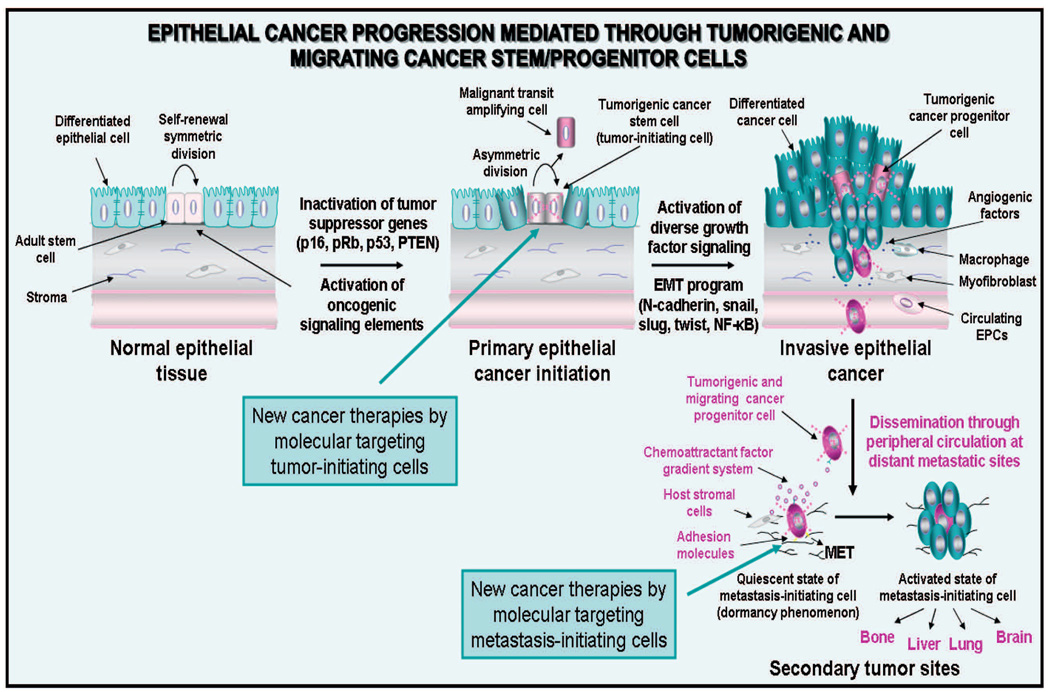Fig. 2.
Model of epithelial cancer initiation and progression mediated through tumorigenic and migrating cancer stem/progenitor cells. The scheme shows the cancer initiation through the accumulation of genetic abnormalities in tissue-resident adult stem cells. The asymmetric division of cancer stem cells localized in the basal compartment into transit-amplifying (TA) cancer progenitor cells can generate the bulk mass of differentiated cancer cells constituting the solid tumor. Furthermore, the transformation of tumorigenic stem/progenitor cells into migrating cancer stem/progenitor cells, which may be induced by the sustained activation of distinct growth factor signaling pathways during the epithelial-mesenchymal transition (EMT) program, is also shown. The possible invasion of certain tumorigenic and migrating cancer stem/progenitor cells in the activated stroma which may lead to their dissemination through the peripheral circulation at distant sites along chemoattractant ligand gradient systems such as SDF-1/CXCR4, and adhesion to ECM components is also illustrated. Moreover, the possible loss of the migratory phenotype of cancer stem/progenitor cells via the occurrence of mesenchymal-epithelial transition (MET) at secondary tumor sites is indicated. The dormancy phenomenon of metastasis-initiating cells and their possible re-activation associated with the formation of secondary tumor formation under specific microenvironmental conditions at distant sites is also indicated. The new cancer therapies by molecular targeting of tumor- and metastasis-initiating cells to counteract cancer progression and metastases at distant sites are also indicated.

